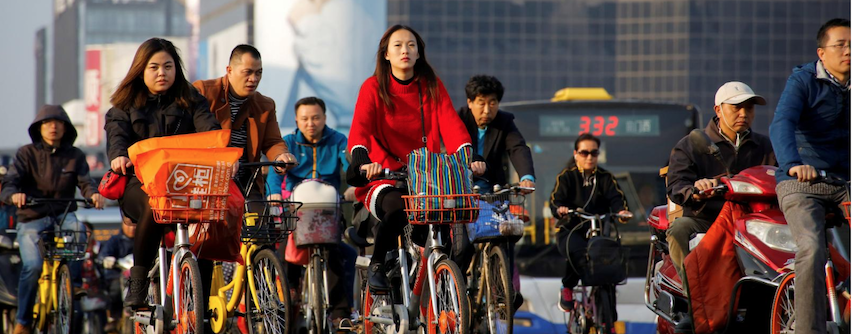Note: The European Union’s effort to target dumping of Chinese bicycles is a continuation of Europe’s past actions to prevent China’s oversupply from flooding their market in many products. The US trade actions this year are merely catching up with what other countries do
BRUSSELS (Reuters) – The European Union opened an investigation on Monday into whether to extend anti-dumping duties on Chinese bicycles, after European makers said they feared an influx of Asian imports could destroy their industry.
[Reuters | June 4, 2018]
European manufacturers asked in March for a five-year extension to EU duties on the bikes that were due to expire on Wednesday.
A series of EU anti-dumping cases has increased trade tensions between Brussels and Beijing at a time when both are facing protectionist measures from Washington.
The bicycle tariffs – in place since 1993 and currently at a rate of 48.5 percent – also cover Indonesia, the Philippines and other states, on suspicion that Chinese bikes are being shipped via them.
They will now stay in place until the EU finishes its investigation, a process that will take up to 15 months, the bloc’s official journal said.
The European Bicycle Manufacturers Association (EBMA) urged European Commission officials to act, saying Chinese manufacturers would massively ramp up imports into the bloc if the restrictions were lifted.
They argued that similar moves had already wiped out local bicycle producers in the United States and Japan.
The association says Chinese prices for energy, metal and chemicals are distorted and that international benchmarks should be used to calculate a fair price for Chinese bicycles.
It also points to Chinese data showing that Chinese-made bicycle exports to the European Union increased by 15 percent last year to 1.66 million units despite the duties, while EU bicycle sales fell by 6 percent.
The Commission is also investigating Chinese electric bicycles following a complaint brought by the EBMA.
Taiwan’s Giant (9921.TW), one of the world’s largest bicycle makers with factories in China, has been involved in both cases. It won a legal challenge in December 2017 to have import duties for it to be annulled.













